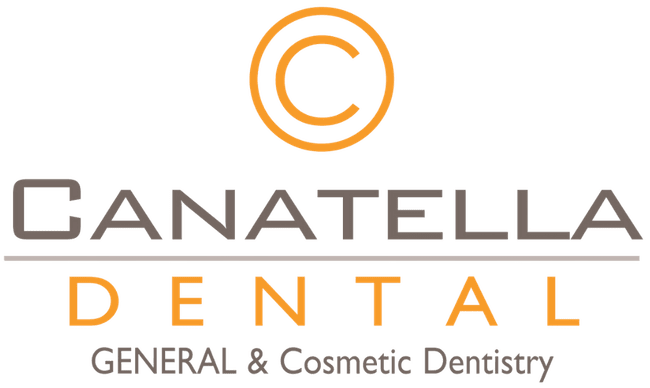Restorative dentistry is all about keeping your teeth healthy and your smile strong. Dr. Todd Canatella and our team will help you chew, speak, and smile with confidence again. At Canatella Dental in New Orleans, we offer many dental services that will improve how your teeth work and look.
Dr. Canatella, an experienced restorative dentist, provides personalized care to meet your needs. Learning about these treatments can help you feel confident in making the best decisions for your dental health.
What Is Restorative Dentistry?
Restorative dentistry includes treatments that repair or replace damaged or missing teeth. These procedures bring back the function and appearance of your teeth while improving the health of your gums and mouth. By using advanced techniques and materials, our dentist can restore your smile to help prevent future dental problems.
Some of the most common restorative treatments are fillings, crowns, bridges, and dentures. These solutions not only address immediate concerns but also protect your teeth from further damage. Restorative treatments can keep your teeth healthy and working well for many years with the right care. At Canatella Dental, we’re here to help you maintain a smile that looks and feels its best!

Restorative Dental Procedures at Canatella Dental
We offer many types of restorative dental procedures. Our dentist will suggest the right ones for you after a through dental exam. Our restorative treatments include:
- Fillings: If you have a cavity, Dr. Canatella will likely recommend a filling. He removes the decayed part of the tooth and fills the space with materials like composite resin or amalgam. Fillings help restore the tooth’s structure and keep the decay from spreading. Composite fillings are the new standard because they match the natural color of your teeth.
- Dental Crowns: Crowns cover and protect damaged or weakened teeth. They help restore the tooth’s shape, size, and strength. We often place crowns after a root canal or when a tooth has a large amount of decay. They consist of strong materials like porcelain or metal for teeth that need extra support.
- Bridges: Bridges replace one or more missing teeth. A bridge consists of artificial teeth held in place by crowns on nearby healthy teeth. This helps fill the gap left by the missing teeth and keeps your other teeth from shifting out of place. We can custom build our bridges from porcelain, gold, or a mix of materials to fit your mouth.
- Dental implants: Dental implants are the best way to replace missing permanent teeth. They consist of an artificial root that the dentist places in your jawbone and tops with a crown. Implants are long-lasting, look real, prevent bone loss in the jaw, and provide a stable base for the replacement tooth. The process takes several visits but is a durable solution that feels just like your real teeth.
- Dentures and Partials: Dentures can replace rows of missing teeth. Partial dentures are for patients who still have some natural teeth, while full dentures replace all the teeth in the upper or lower jaw. Dentures improve both how you chew and how you speak. Our modern dentures will always fit comfortably and look like real teeth.
- LANAP treatments: LANAP is a treatment for gum disease that uses lasers instead of scalpels. It removes infected tissue without having to use sharp tools. LANAP is less invasive than oral surgery and helps the gums heal faster. This treatment also cleans deep pockets around the teeth to preserve as much healthy tissue as possible.
- Tooth extractions: Sometimes, a tooth is too damaged to save, so the dentist needs to remove it. Dr. Canatella may recommend extraction to prevent further issues or to make room for other teeth. This is often the case with impacted wisdom teeth. The procedure is simple and includes local anesthesia to keep you comfortable.
- Laser dentistry: We use laser technology at Canatella Dental for certain treatments. Lasers can treat cavities or gum disease with more precision and less discomfort. Laser treatments often require little to no anesthesia, and many patients find the experience less stressful than traditional drilling.
Restorative dentistry is about more than just fixing teeth. By getting the right treatment, you not only restore your smile but also protect your teeth from future issues. These treatments help improve how your teeth work, make it easier to chew and speak, and give you a smile you can be proud of.
Benefits of Restorative Dentistry
Our restorative services at Canatella Dental will provide you with many benefits that go beyond just fixing damaged teeth. Here are some of the main reasons why it can make a big difference in your daily life.
- Better Oral Function: You can enjoy eating and speaking without worry. Damaged or missing teeth can make chewing difficult and may even affect the way you talk. Treatments like fillings, crowns, or implants restore your teeth’s function, so you can enjoy your favorite meals and speak clearly again. Fixing these issues also keeps your other teeth in place, which helps maintain a healthy, balanced bite.
- Improved Look: Restorative treatments don’t just work well, they look great too. Modern dental materials will look natural and complete, no matter whether you’re getting a filling, crown, or bridge. A polished, healthy smile can make you feel more confident about your appearance, which can brighten every aspect of your day.
- Preventing More Damage: Taking care of dental problems early can save you from bigger headaches later on. A small cavity or a cracked tooth might not seem like a big deal, but it can lead to infections, more tooth damage, or even tooth loss. Getting treatment now helps you avoid pain, extra dental visits, and higher costs down the road. Addressing these issues early is a smart way to protect your smile and your wallet.
- Boosted Confidence: And let’s not forget what a healthy smile does for your confidence. When your teeth feel and look their best, you’re more likely to smile freely and feel comfortable in social or professional settings. You won’t have to worry about hiding your teeth or holding back anymore. This can improve your interactions with others and boost your self-esteem.
Restorative dental care gives you back a smile that feels great and looks even better. Dr. Todd Canatella will help you enjoy life without hesitation.
How to Care for Your Restorative Dental Work
Maintain good habits to protect your investment and keep your smile in the best shape. Taking proper care of your restorations will help them last longer and keep your overall oral health in check.
Brushing and flossing daily is one of the most important ways to maintain your dental work. Use a soft toothbrush and fluoride toothpaste to gently clean your teeth and gums. This will reduce plaque buildup and lower the risk of decay around your restorations. Proper flossing helps remove food particles and debris from areas that brushing alone can’t reach.
Regular visits to Dr. Canatella are also key to preserving your dental work. Professional cleanings and exams allow your dentist to check your restorations and ensure everything is in good condition. These routine appointments give you peace of mind and help catch any potential issues before they become bigger problems.
What you eat matters too. Hard and sticky foods can damage your dental work, so it’s best to avoid chewing on ice, hard candy, or sticky treats. Choosing softer foods and being mindful while eating will reduce the chances of accidentally harming your restorations.
For those who grind their teeth or participate in sports, using a mouthguard offers an extra layer of protection. Grinding can wear down dental work over time, and sports activities can increase the risk of damage. A custom-fitted mouthguard from your dentist provides the best defense for keeping your teeth and restorations safe.
If you smoke, quitting is another important step for protecting your oral health. Smoking can stain your teeth and restorations, making them look less appealing over time. Beyond cosmetic concerns, smoking also affects your overall oral health. So giving it up will benefit both your smile and your general well-being.
By following these simple steps, you can ensure that your restorative dental work stays in great shape for many years. A little effort now will help you enjoy the benefits of a strong, healthy smile for many years ahead.
At Canatella Dental, we focus on providing personalized care that meets each patient’s needs. When you are ready, give our dental office in New Orleans, LA a call at 504-385-1092 to schedule your next dental exam.
